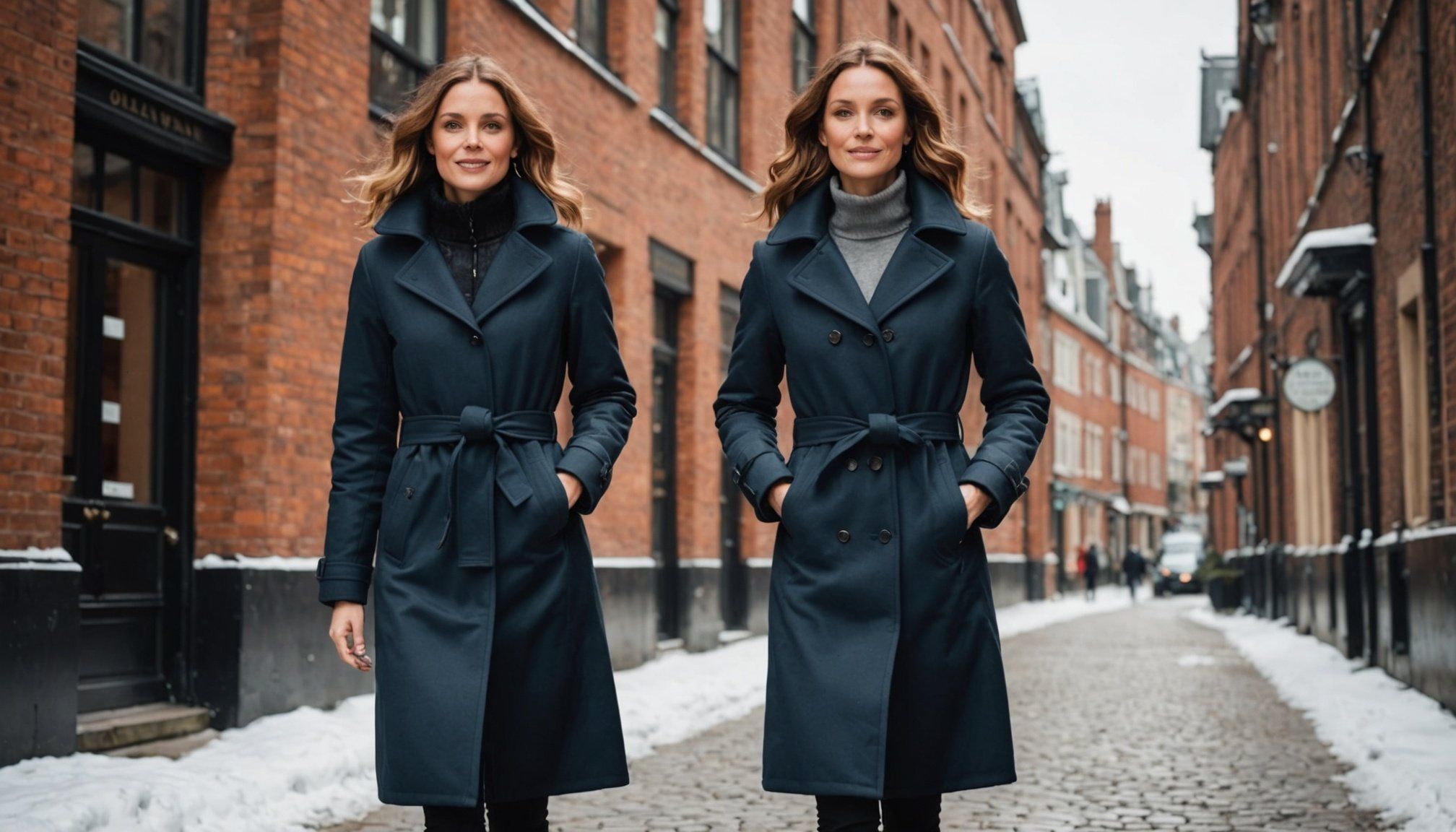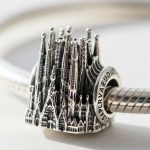Introduction to Vegan Winter Coats
In recent years, vegan winter coats have surged in popularity, driven by consumers’ growing interest in ethical fashion. These coats offer a cruelty-free alternative to conventional winter wear, free from animal-derived materials such as wool, leather, and down feathers. As awareness of animal rights and sustainability increases, many individuals are opting for sustainable clothing that aligns with their values.
The importance of ethical considerations in winter wear goes beyond animal welfare. By choosing vegan options, consumers contribute to reducing the environmental impact. Regular winter coats often involve processes harmful to the planet, whereas vegan versions frequently utilize eco-friendly materials. These coats not only safeguard animals but also promote environmentally responsible practices, meeting the demand for sustainable clothing.
Also to read : Unveiling the hottest uk fashion trends to anticipate this season!
Functionality is a crucial aspect of any winter coat. Vegan options must provide warmth and protection against harsh climates. Innovations in vegan materials ensure these coats are not just ethical but also functional during winter months. They incorporate high-quality insulation and weather-resistant technologies that offer the required climate impact and functionality for cold weather, proving that one does not have to compromise on performance for ethical choices. This shift towards conscious consumption showcases a seamless blend of fashion and function in the modern winter wardrobe.
Essential Material Quality
Ensuring material quality is paramount in assessing vegan winter coats. A diverse range of vegan materials ensures both comfort and sustainability. Fabric types such as recycled polyester, organic cotton, and innovative plant-based fibres are popular choices. These offer not only exceptional warmth but are often lighter and more breathable than traditional materials.
In parallel : Unveiling the perfect skirt lengths for petite women in the uk: your ultimate style handbook
When selecting a coat, consider the benefits of using high-quality materials. High performance vegan materials provide effective insulation against cold temperatures without the bulk, ensuring a comfortable fit. Additionally, these materials often boast moisture-wicking properties, keeping wearers dry and warm in various winter conditions.
Environmental considerations are integral in the sourcing of these vegan materials. Many brands opt for fabrics produced with minimal environmental impact, such as those requiring less water and energy in their manufacturing processes. By selecting coats made from carefully sourced materials, consumers can have a smaller carbon footprint.
This focus on material quality goes hand-in-hand with the broader movement towards ethical fashion, aligning personal choices with values that support sustainability. Whether you value innovation, comfort, or eco-friendliness, the selection of the right materials ensures your vegan winter coat is both functional and responsible.
Insulation Options
When considering vegan winter coats, understanding the variety of insulation types available is crucial for maintaining warmth. Common insulation materials found in vegan coats include polyfill, Primaloft, and Thinsulate, all key players in warmth retention. Unlike natural down, these eco-friendly insulation options provide excellent thermal efficiency without animal involvement.
Synthetic insulation, often lighter and highly compressible, offers superior wet-weather performance compared to natural alternatives. Natural insulation like wool, although warm, may not fit the vegan criteria. When comparing, synthetic options maintain warmth even when wet, which is essential in winter coats for those in rainy or snowy climates.
Evaluating warmth retention ratings can guide optimal choices. High ratings often indicate superior thermal retention, ensuring the coat meets your individual needs. Look for coats with fill power ratings that specify the volume of warmth they can provide per weight unit.
In essence, the right insulation ensures that vegan winter coats not only meet ethical standards but also perform as needed in diverse climates. Selecting the appropriate insulation ensures a balance of ethics, comfort, and climate adaptability.
Durability and Longevity
In the quest for durability, the construction and materials of vegan winter coats play pivotal roles. Without compromising ethics, the choice of robust vegan materials such as recycled polyester can withstand daily wear and tear. This ensures a longer coat lifespan while maintaining eco-friendliness, appealing to conscientious consumers.
Selecting a quality brand is fundamental. Brands with a reputation for employing skilled craftsmanship in their manufacturing processes offer coats that endure harsher conditions. It’s crucial to assess aspects like reinforced stitching and robust zippers, which are indicative of well-made garments that promise durability.
To extend the life of a vegan winter coat, routine maintenance is key. Clean according to recommended maintenance tips to prevent fabric degradation. Carefully follow washing instructions, avoiding harsh chemicals that might weaken fabric integrity over time. Proper storage during off-seasons in cool, dry places also helps maintain quality.
By being attentive to the construction quality and adhering to upkeep guidelines, wearers can ensure their vegan winter coats remain in superior condition for many years. This not only minimises waste but also aligns with sustainable living practices, supporting a longer-lasting wardrobe.
Waterproof and Weather Resistance Features
When evaluating vegan winter coats, it is essential to consider their waterproofing and weather resistance attributes. Effective waterproofing often begins with the coat’s outer shell, which should be crafted from high-performance materials like recycled polyester. This protects against rain and snow, keeping the wearer dry.
A key aspect to assess is breathability, which prevents moisture buildup inside the coat while maintaining warmth. Breathable fabrics efficiently wick moisture away, ensuring comfort and dryness even during active use.
The degree of weather resistance is crucial, especially if you reside in an area with harsh winters. Always check for reinforced seams and coatings like DWR (Durable Water Repellent) that enhance the protective layer against wind and moisture.
In selecting the right coat, consider your climate needs and activity level. A balance of waterproofing and breathability is essential for outdoor activities, while lighter options with moderate resistance might suffice for urban environments. By focusing on these features, you ensure that your vegan winter coat offers reliable protection and enhances your winter wardrobe’s functionality. This careful selection guarantees comfort and warmth through every season.
Ethical Sourcing and Manufacturing
When selecting vegan winter coats, identifying products from ethical sourcing processes is key. Consumers increasingly seek coats that align with their ethical values, requiring brands to embrace sustainable practices. Ethical manufacturing prioritizes humane working conditions and environmentally friendly methods, reducing the industry’s overall carbon footprint.
Brands committed to sustainable practices often use eco-friendly materials and energy-efficient production techniques. By minimising waste and pollution, they contribute to a more sustainable future. Such practices support regenerative resources, indicative of truly responsible fashion.
Brand transparency is critical in these considerations. Companies that openly share information about their sourcing and manufacturing processes build trust. This transparency reassures consumers that their purchases align with both ethical and environmental goals.
When choosing a coat, consider a brand’s reputation for ethical manufacturing. Researching a company’s commitment to sustainable practices can inform more responsible buying decisions. Look for certifications and partnerships with environmental initiatives, as these are signs of a brand dedicated to ethical principles.
In summary, by prioritizing ethical sourcing and sustainable practices, consumers can ensure their winter wardrobe choices support a broader movement towards responsible and brand-transparent fashion.
Style Options and Trends
Exploring the world of winter fashion opens up a myriad of exciting style choices in vegan winter coats. In recent seasons, trendy designs have leaned towards oversized silhouettes, bold colours, and innovative patterns. Materials like faux fur and vegan leather add texture and elegance, reflecting both individual style and commitment to ethical fashion.
When selecting a coat that aligns with personal style, consider your lifestyle and colour palette preferences. Do you need something versatile for day-to-night wear, or perhaps a statement piece for special occasions? The adaptability of vegan coats allows for diverse looks, whether casual or formal. Many styles offer detachable hoods, adjustable waistlines, and mix-and-match accessories, providing flexibility.
Trendy designs are not just for aesthetics; they cater to practicality as well. Consider the functionality of pockets and fasteners, essential in cold climates. The right vegan winter coat can serve as a key wardrobe staple, combining flair with the needs of everyday life.
Stay informed about emerging trends by following fashion blogs, magazines, and influencer insights. These resources help keep your wardrobe fresh and stylish, perfectly integrating vegan winter coats into modern fashion narratives.
Care and Maintenance Tips
Proper coat care is essential to maintain the quality and longevity of your vegan winter coat. Following specific maintenance tips can prevent damage and keep your coat in top condition. Always adhere to the washing instructions on the label. Many vegan materials require gentle cold washing and need to be air-dried to preserve their integrity.
Avoiding harsh detergents is crucial, as these can break down the fabric fibres, reducing the coat’s lifespan. Opt for mild soaps that are formulated for delicate fabrics. During storage, hang your coat in a cool, dry place. Proper spacing prevents fabric compression and helps maintain the coat’s shape.
For minor damage, explore local repair shops or online resources that specialise in repairing vegan materials. Small tears or zipper issues can often be fixed with simple kits or professional services. This not only extends the garment’s life but also contributes to sustainable living by reducing waste.
Regularly brushing off dirt and debris helps maintain the coat’s appearance. Similarly, using protective sprays that are compatible with vegan fabrics can enhance water and stain resistance. Implementing these practices will ensure your vegan winter coat remains a staple in your winter wardrobe for years to come.
Brand Recommendations and User Reviews
Selecting the perfect vegan winter coat involves knowing which brands offer superior products and align with your ethical values. Among the recommended brands, Patagonia is praised for its commitment to sustainability, including its use of recycled materials. Vaute Couture, another notable name, is celebrated for innovative designs that combine style with compassion.
User testimonials often highlight the quality craftsmanship seen in brands like Columbia and Save the Duck. Consumers frequently praise these companies for their attention to durability and ethics, ensuring the coat lifespan matches their standards for responsible fashion.
When considering consumer feedback, it’s crucial to focus on experiences related to warmth, style, and weather resistance. Insights from users can guide you towards selecting a coat that balances eco-friendly insulation, offers chic style options, and withstands wear and tear.
Considerations for brand selection include reviewing product transparency and the ethical practices of manufacturers. Look for brands actively displaying their sustainable practices, which builds confidence in your purchase decision. By valuing these aspects, you ensure that your choice not only keeps you warm but also resonates with broader ethical and ecological commitments.





















